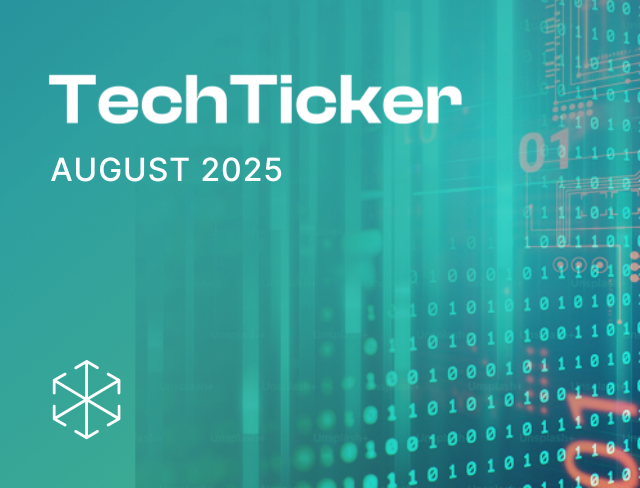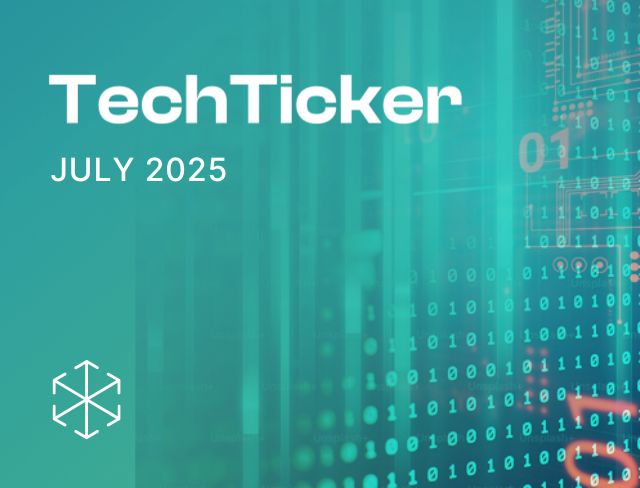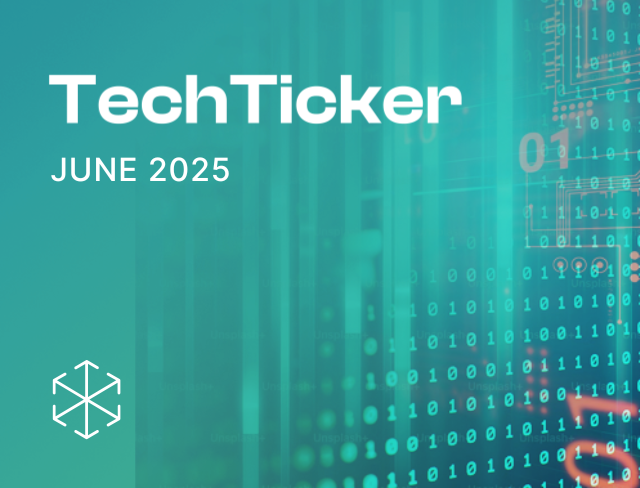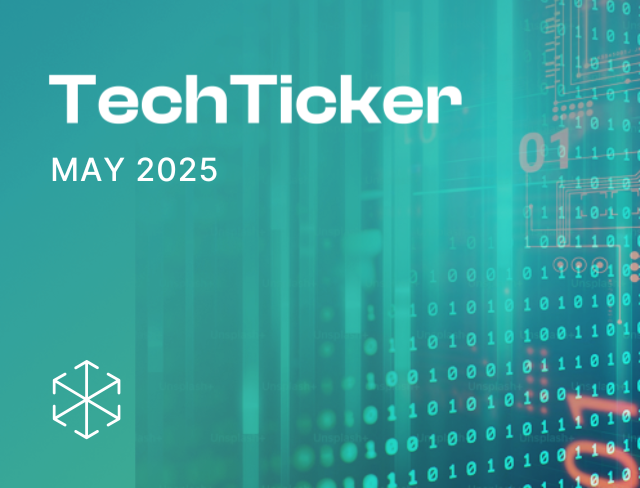
In this edition, we bring you the tug of war between telecom and satellite operators for 5G spectrum. Also uncovering – Tamil Nadu’s data policy for good governance, the National Restaurants Association’s spat with Swiggy and Zomato, and more!
5G by the end of the year?
The Telecom Regulatory Authority of India (TRAI) recently released its recommendations on 5G spectrum. TRAI proposed slashing the base price of spectrum by 35-40%–as opposed to a 90% reduction sought by the telecom industry. Large swathes of spectrum remained unsold in the 2016 and 2021 auctions due to high spectrum prices.
What about the 28 Ghz band? TRAI has acknowledged that offering the “27.5-28.5 GHz band exclusively for International Mobile Telecommunications (IMT) may result in reducing the serving capacity of the satellite systems”. It has suggested that IMT stations and earth stations can co-exist in the 27.5- 28.5 GHz band, with the latter to be established at remote locations on a case-by-case basis in locations where 5G IMT services are unlikely to be offered. TRAI’s suggestions are a possible victory for the satellite industry. The 28 Ghz band is a contested commodity between the telecom and satellite industries, with both believing that the band should be allocated for their use to the exclusion of the other. Read more about the debate over the 28 Ghz band in India.
Method of allocation of spectrum: TRAI proposed auctioning all the spectrum bands. The satellite industry wanted the Indian government to allocate the 28Ghz band administratively in line with global best practices. But after the Supreme Court’s decision in the 2G spectrum case, India only auctions spectrum.
There’s more: TRAI called for a 5G-dedicated Inter-Ministerial Working Group (IMWG) to increase the uptake of 5G use cases. The IMWG will be chaired by the Department of Telecommunications (DoT) and includes members from the IT Ministry, Department of Space, Finance Ministry, Ministry of Commerce, among others. It will be tasked with creating an enabling environment for the adoption of digital technologies like 5G, Internet of Things, Artificial Intelligence across healthcare, agriculture, education, mining, among other sectors.
Next steps: The DoT usually accepts TRAI’s recommendations, but it is not bound to do so. Reports suggest the Indian government is looking to conduct spectrum auctions in the next 2-3 months and targets rolling out 5G services by the end of this year. Given the timelines India is looking at, the DoT may accept TRAI’s recommendations in its current form.
However, 5G spectrum auction, especially the reserve price of spectrum bands, has been a contentious issue between TRAI and DoT. Previously the DoT had asked TRAI to revisit the base price of spectrum. Some DoT officials have acknowledged the spectrum prices proposed now are still high. Reports also suggest that the Indian government may be looking to introduce a new spectrum law to address the issue of auctioning, reservation and allotment of spectrum. While it is unlikely, these developments may yet extend the timelines for auction.
Tamil Nadu releases a data use policy
Data for good: Last month, the Tamil Nadu government released a data policy (TN Policy). The TN Policy’s thematic focus is making data usable for public good. It will make data accessible to all stakeholders including private parties in a transparent manner, similar to what IT Ministry’s draft data accessibility and use policy intended to do. The TN Policy seeks to create a single repository of data – with identifiers such as name, date of birth, addresses, bank account details – and leverage it for delivering government schemes. Stakeholders can access datasets without permission in some cases, and in others, with authorization and for a fee. A decision matrix has been included to guide state departments on sharing data (see below).

A catalogue of data- about data: The TN Policy proposes creating a ‘meta data catalogue’, which will help stakeholders sift through the relevant data often piled in excel sheets. Type of data collected, length of data, and other attributes of typical data points like name, address, among others– are some of the questions that the catalogue will answer for stakeholders accessing the data. The idea is to create good quality datasets which will enable policy research and implementation of government schemes.
Who’s who of the TN Policy: A data governance committee will be set up to provide strategic guidance for execution. And an inter-departmental committee will oversee operational-level decisions. The chief executive officer of the Tamil Nadu e-Governance Agency will act as the state’s chief data officer.
Challenges: Lack of technical tools and expertise for maintaining privacy and security of data are some of the roadblocks in the execution of the TN Policy. Another point of concern is that the TN Policy seeks to monetize data. Stakeholders flagged similar concerns with IT Ministry’s data policy, which the government is now looking to revamp.
In case you missed it
Stars have aligned for
Digital trade: India finalized the Comprehensive Economic Partnership Agreement (CEPA) with the UAE. The UAE CEPA is the first major free trade agreement (FTA) that India has signed in 10 years. India is also negotiating FTAs with the UK, Canada, Australia, and EU. The UAE CEPA has a digital trade chapter (a first for India), which recognises the importance of free flow of data in facilitating trade. But the promise to promote cross border data transfer is non-binding and subject to the regulatory framework in both the countries. Also, Indian government officials shared that the bilateral talks between India and the UK are unlikely to include a definitive discussion on data protection and e-commerce. Much like UAE CEPA, the government is not willing to make binding commitments to make space for upcoming policies in these sectors. Cross border data transfers are likely to be discussed during the UK Prime Minister Boris Johnson’s visit to India scheduled for April 2022. More on FTAs and digital trade, here.
Healthtech: The Department of Pharmaceuticals released a draft National Medical Device Policy, 2022 (Policy). The Policy seeks to reduce compliance burdens on medical device manufacturers and promote ease of doing business. It calls for a single window clearance system for licensing medical devices, and effective price control mechanisms, among other things. Also, the National Health Authority (NHA) released a consultation paper on drug registry. The drug registry seeks to capture details of all the drugs sold in India and help inventory flow through patient-centric digitisation. The NHA has also invited all developers to participate in building the unified health interface (UHI). The UHI will help doctors and patients interact, regardless of their respective technology platforms. Read our comments to the NHA’s UHI design and governance framework.
Mercury is in retrograde for
Food aggregator/delivery platforms: Earlier this month, the Competition Commission of India (CCI) initiated an investigation into Zomato and Swiggy for alleged anti-competitive practices. The CCI will investigate allegations that these platforms bundle their services and enter into exclusive arrangements with restaurant operators to avail food delivery and ordering services. The CCI will also look into issues of masking customer data from restaurant owners, operating private labeled cloud kitchens and charging high rates of commissions. These issues were flagged last year by the National Restaurants’ Association of India to the CCI. More recently, Zomato has also received some flak for its proposed policy of temporarily banning restaurants from its food-delivery platform if it receives many customer complaints about food quality.
Gaming: The Finance Ministry and the Reserve Bank of India have expressed concerns over the lack of a framework for regulating online games. They are considering treating online gaming as a regulated activity under India’s anti-money laundering law. This comes after investigating authorities struggled to trace transactions that occurred through certain unnamed online gaming companies. These companies did not conduct Know-Your-Customer for users of their platforms.
Our learnings on regulatory approaches to AI enabled healthcare –Project Reg:AIH
We partnered with the British High Commission in India to facilitate a dialogue on ‘building bridges on regulatory approaches to AI/ML enabled healthtech’ (Reg:AIH). During our collaboration, we met with stakeholders representing government, regulators, think-tanks, academics, industry bodies and startups in the UK. They flagged the need for more technology interventions to show evidence of meaningful clinical health outcomes. Other common themes discussed included challenges with accessing and using data, safely and ethically. UK’s work on developing algorithmic impact assessments and toolkits to embed trust, ensure inclusivity when building AI tools – is way mature than India’s. Our insights from Reg:AIH, here
That’s all from us, folks! We’d love to hear your thoughts on the top stories of the week and the new update to the tech ticker. Write to us at contact@ikigailaw.com.









